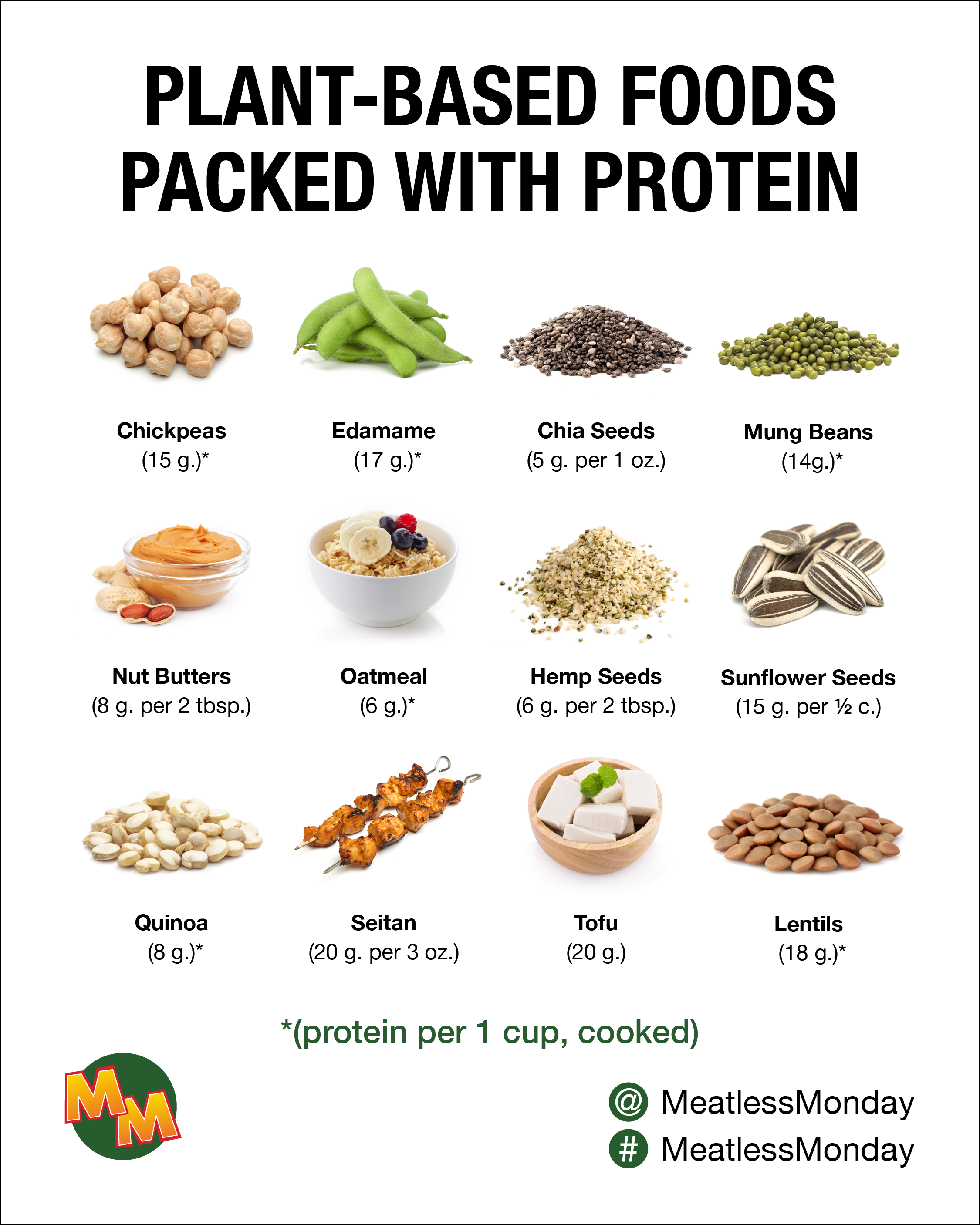7 Flavor-Packed BBQ Sauces That Are Perfect for Meatless Grilling
7 Flavor-Packed BBQ Sauces That Are Perfect for Meatless Grilling
Blog Article
All About Healthy And Balanced Food: Benefits of Enjoying Plant Based Choices
The conversation bordering plant-based diet plans has acquired considerable focus in the last few years. Numerous people are checking out the prospective wellness advantages, nutritional advantages, and ecological impacts connected with these nutritional choices. As people come to be more familiar with their food's impact on well-being and sustainability, inquiries arise concerning the usefulness of embracing such a lifestyle. What particular adjustments can one expect, and exactly how might these choices reshape not just personal health and wellness but likewise the planet's future?
Comprehending Plant-Based Diets
Several people connect plant-based diet regimens mostly with vegetarianism or veganism, these diet plans can incorporate a vast range of eating patterns that prioritize whole, minimally processed plant foods. Such diet plans frequently consist of fruits, vegetables, whole grains, seeds, nuts, and legumes, while getting rid of or limiting pet products. This adaptability allows people to tailor their dietary selections according to individual preferences and dietary needs. Some might take on a largely plant-based diet while still sometimes consuming meat or dairy, commonly described as a flexitarian strategy. The focus stays on integrating even more plant foods, which can result in a varied array of meals and tastes. Recognizing these different analyses of plant-based eating is necessary for valuing its access and allure in modern food culture.
Health And Wellness Advantages of Plant-Based Foods
The wellness advantages of plant-based foods are substantial, offering a nutrient thickness advantage that supports general wellness. Research suggests that these foods can boost heart health and wellness and play an important function in effective weight management. By incorporating much more plant-based alternatives, individuals may enhance their dietary selections and promote long-term health.
Nutrient Density Benefit
Nutrient thickness plays an essential role in the health advantages of plant-based foods, making them an engaging option for those looking for a balanced diet. Plant-based foods, such as fruits, veggies, legumes, nuts, and whole grains, are commonly abundant in crucial vitamins, minerals, and anti-oxidants while being reduced in calories. This high nutrient thickness allows individuals to consume less calories while still fulfilling their dietary requirements. In addition, these foods are loaded with dietary fiber, promoting digestive health and assisting in weight monitoring. By integrating nutrient-dense plant-based alternatives, customers can improve their general health, sustain their immune systems, and reduce the threat of persistent diseases. Ultimately, the nutrient density of plant-based foods emphasizes their value in a health-conscious way of life.
Heart Health And Wellness Enhancement

Weight Administration Support
Along with promoting heart wellness, a plant-based diet plan can considerably assist in weight monitoring. This dietary strategy highlights entire foods such as fruits, veggies, vegetables, nuts, and entire grains, which are normally lower in calories and higher in fiber compared to animal-based items. The high fiber content aids raise satiety, reducing general calorie intake. Plant-based diets are typically abundant in vital nutrients while reduced in unhealthy fats, making it simpler to keep a healthy weight. Research study shows that people who embrace a plant-based way of living have a tendency to have reduced body mass indexes (BMIs) and experience more effective weight-loss contrasted to those that take in meat-heavy diet regimens. Embracing plant-based options is a tactical selection for reliable weight management.
Nutritional Value of Plant-Based Ingredients
Plant-based components are rich in necessary nutrients, supplying a varied selection of vitamins, minerals, and antioxidants that contribute to general health and wellness. A contrast of protein resources discloses that while pet items are usually deemed remarkable, many plant-based options offer appropriate healthy protein and various other valuable substances. Understanding the dietary worth of these components can assist individuals make notified dietary options.
Vital Nutrients in Plants
Nutrient-rich components discovered in plants provide a diverse array of important vitamins and minerals that add greatly to total health. These ingredients are abundant in vitamins A, C, and K, which support immune function, vision, and blood clotting, specifically. In enhancement, plants offer crucial minerals such as potassium, magnesium, and calcium, crucial for heart wellness, muscle mass feature, and bone toughness. The presence of fiber in plant-based foods aids food digestion and promotes a healthy and balanced digestive tract microbiome. Antioxidants, located generously in fruits and vegetables, aid battle oxidative stress and lower inflammation. Numerous plant foods are reduced in calories yet high in nutrients, making them an outstanding selection for those looking for to maintain a healthy weight while making certain optimal nutrient consumption.

Contrasting Healthy Protein Resources
Healthy protein resources vary considerably in their dietary profiles, with plant-based ingredients offering unique advantages. Unlike pet healthy proteins, which commonly consist of saturated fats and cholesterol, plant proteins have a tendency to be lower in these unhealthy parts. Legumes, nuts, seeds, and entire grains are abundant in essential amino acids, fiber, vitamins, and minerals. Lentils offer high healthy protein material alongside substantial iron and folate, while quinoa is a complete protein, supplying all nine essential amino acids. Furthermore, plant-based healthy proteins are typically accompanied by anti-oxidants and phytochemicals that sustain general health and wellness. The shift to plant-based healthy protein sources not just boosts dietary intake yet also straightens with sustainable nutritional methods, lowering ecological influence and promoting long-lasting health advantages.
Environmental Impact of Plant-Based Consuming
As awareness of climate adjustment grows, several individuals are discovering sustainable dietary choices that can considerably decrease their ecological impact. Plant-based consuming has actually become a substantial contributor to minimizing greenhouse gas discharges, which are mostly related to animals production. The cultivation of fruits, grains, vegetables, and beans commonly calls for less resources, such my site as water and land, contrasted to pet farming. In addition, plant-based diet plans can bring about decreased logging, as much less land is needed for grazing livestock or growing animal feed. By moving in the direction of plant-based choices, consumers can support biodiversity and promote much healthier environments. On the whole, embracing plant-based eating not only advantages personal health however likewise represents an important action toward environmental sustainability and conservation efforts.
Overcoming Common Misconceptions
While numerous individuals acknowledge the benefits of a plant-based diet, several misconceptions typically prevent them from completely accepting this way of living. An usual belief is that plant-based diets do not have enough healthy protein; nonetheless, countless plant resources, such as beans, nuts, and tofu, supply adequate protein. In addition, some presume that this diet plan is costly, when actually, staples like beans, rice, and seasonal veggies can be rather affordable. An additional misconception is that plant-based eating is extremely limiting, whereas it really offers a varied variety of flavors and foods. Several worry that a plant-based diet might lead to deficiencies, yet with correct planning, individuals can get all needed nutrients, consisting of minerals and vitamins, while appreciating a large variety of scrumptious meals. Large Tips for Transitioning to a Plant-Based Way of life
Making the change to a plant-based way of life can be an improving experience, though it commonly requires some assistance to navigate the first changes. Initially, individuals are encouraged to begin gradually, integrating even more fruits, vegetables, vegetables, and whole grains right into their meals while minimizing meat and dairy intake. Meal planning is necessary; preparing an once a week menu can assist alleviate the change and avoid last-minute harmful choices. Exploring new dishes and cooking techniques can also maintain and enhance the experience exhilaration about plant-based consuming. In addition, joining support system or communities can provide motivation and share useful pointers. Remaining educated regarding nourishment assurances well balanced dishes, protecting against shortages while promoting a healthy and balanced, satisfying plant-based way of life.

Delicious Plant-Based Meal Concepts
Checking out scrumptious plant-based meal ideas can motivate individuals to welcome a more healthy diet regimen. One popular alternative is a hearty quinoa salad, including cherry tomatoes, cucumber, and a zesty lemon-tahini dressing. An additional fave is a full-flavored lentil stew, packed with carrots, celery, and great smelling herbs, ideal for a calming dinner. For morning meal, over night oats made with almond milk, chia seeds, and topped with fresh berries offer a healthy start to the day. Furthermore, a lively veggie stir-fry with tofu and a variety of colorful veggies can be a quick yet satisfying meal. Lastly, velvety avocado salute on whole-grain bread, sprinkled with flavors and seeds, uses a straightforward yet flavorful treat. that site These meals showcase the variety and splendor of plant-based eating.

Regularly Asked Concerns
Can a Plant-Based Diet Plan Give Enough Protein?
The question of whether a plant-based diet can give enough healthy protein is typical. Many sources, including legumes, nuts, seeds, and entire grains, can satisfy protein needs properly, sustaining a healthy and well balanced diet plan for people.
Are Plant-Based Diet Regimens Ideal for Children?
The suitability of plant-based diets for kids depends on careful planning. Adequate nutrients must be assured, consisting of healthy proteins, minerals, and vitamins. With proper guidance, such diets can sustain healthy and balanced development and development in youngsters.
Just how Do I Eat in restaurants on a Plant-Based Diet regimen?
Dining out on a plant-based diet plan includes seeking dining establishments with varied food selections, requesting for modifications, and exploring vegan-friendly options. Planning in advance and connecting dietary choices can Our site improve the dining experience while preserving dietary selections.
What Prevail Irritants in Plant-Based Foods?
Typical irritants in plant-based foods consist of soy, gluten, nuts, and seeds - Plant Based Chicken. Individuals adhering to a plant-based diet ought to recognize these allergens and review labels meticulously to prevent unfavorable responses and assure secure intake
Can Plant-Based Diets Aid With Fat Burning?
Study suggests that taking on a plant-based diet plan might assist in weight-loss due to its generally lower calorie thickness and higher fiber web content. This combination can improve satiation, assisting individuals manage their caloric consumption efficiently. Lots of people link plant-based diet plans primarily with vegetarianism or veganism, these diet plans can incorporate a large array of eating patterns that prioritize whole, minimally refined plant foods. Nutrient density plays a necessary duty in the wellness advantages of plant-based foods, making them a compelling choice for those looking for a balanced diet regimen. Plant-based diet plans have actually been shown to noticeably boost heart wellness, as they usually have aspects that support cardiovascular feature. In enhancement to promoting heart health, a plant-based diet plan can substantially assist in weight administration. A common belief is that plant-based diet regimens do not have enough protein; however, many plant sources, such as vegetables, nuts, and tofu, supply sufficient healthy protein.
Report this page